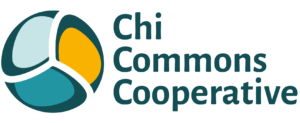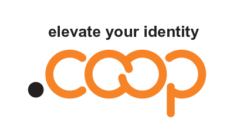Ready to join? Become a ChiCommons owner and build the solidarity economy
Welcome! We’re excited that you are considering joining us as an owner. This primer documents the cooperative’s vision, mission and principles, cooperative agreement (bylaws), and ownership.
Mission
To cooperatively foster and grow a people-owned solidarity economy
Vision
Empowered, integrated, equitable cooperative/solidarity economies across the Chicago region; connected globally with ChiCommons-provided tools, services, and strategies
ChiCommons Values (extended)
We, the owners, have developed this statement of values. This is an evolving list, which will change over time as we grow and develop.
These values are presented in alphabetical order and imply no particular prioritization. We welcome comments on this statement and possible prioritization.
Accountability
We pledge to our communities, clients, and to each other to be accountable for our actions and for keeping our commitments. We pledge to view our actions in the broad context of building the solidarity economy, including its social, political, and ecological aspects. We pledge to use accountability for constructive purposes and to support each other and our community. We invite the community to call us out when we fall short.
Balance
Our organization strives for harmony. We value our work with the rest of the solidarity economy, aim to provide our owners with a work-life balance, and share our labor and our profits. Tensions are a natural outcome of working together. We aim to learn how to resolve such tensions cooperatively. We hope to create a space where everyone feels safe and supported and contributes to the same.
Beyond Work
As a cooperative we want our time together to foster creative play. Our efforts are opportunities to build and maintain joyous social connection.
Cooperation and Connectivity
We aim to serve and strengthen the solidarity economy and other communities in which we participate. We work in service of building relationships and growing community.
Fairness
Cooperatives are an essential alternative organizational structure in our society. We are a cooperative because we believe in consent-based decision-making and that the profits of our organization should be equitably distributed. Our dedication to fairness does not end in our cooperative agreement, but rather extends to every part of our enterprise.
Inclusion
We strive to welcome everyone committed to our vision to join our community. Manifesting our values will require people with a wide variety of skillsets and lived experiences. We take proactive steps to make our diverse, asynchronous organization work for everyone. This welcome is particularly addressed to members of historically marginalized communities.
Learning and Teaching
We commit to continuous learning and mutual education. This includes polishing and upgrading our work skills, teaching each other, and learning how to better cooperate with each other, our clients, and the larger community. Continually improving our capacity to cooperate is an essential aspect of building the solidarity economy.
Respect
As an organization dedicated to its owners and the community, we work to ensure that everyone feels respected. We seek to create spaces where everyone feels welcome and can carry out our work in ways that maintain our community.
Service
Our organization aims to provide prompt, helpful client-focused collaborations rather than purely transactional consumer relationships. Beyond our business activities, we work with the community to facilitate the non-commercial exchange of assets. We will actively participate in community projects centered around the solidarity economy.
Transparency
We commit to honesty and directness and to avoid deception and manipulation with each other, with our clients, and in our participation in the larger community.
We manifest these values through our work together to help create a robust, sustainable, virtuous solidarity economy. Our community work – which includes the Chicago Area Cooperative Map, participation in Chi Hack Night, and the BlockShare cooperative internet project – allows us to serve the neighborhoods we live in. Our consulting work aims to provide quality services to all parts of the solidarity economy. We welcome comments on our values.
ChiCommons Cooperative Principles
We operate our cooperative on the Seven Principles of Cooperation as expressed by the International Cooperative Alliance and base our management on Sociocracy 3.0
The 7 Principles of Cooperation (International Cooperative Alliance)
1. Voluntary and Open Membership
Cooperatives are voluntary organizations, open to all persons able to use their services and willing to accept the responsibilities of membership, without gender, social, racial, political, or religious discrimination.
2. Democratic Member Control
Cooperatives are democratic organisations controlled by their members, who actively participate in setting their policies and making decisions. Men and women serving as elected representatives are accountable to the membership. In primary cooperatives members have equal voting rights (one member, one vote) and cooperatives at other levels are also organised in a democratic manner.
3. Member Economic Participation
Members contribute equitably to, and democratically control, the capital of their cooperative. At least part of that capital is usually the common property of the cooperative. Members usually receive limited compensation, if any, on capital subscribed as a condition of membership. Members allocate surpluses for any or all of the following purposes: developing their cooperative, possibly by setting up reserves, part of which at least would be indivisible; benefiting members in proportion to their transactions with the cooperative; and supporting other activities approved by the membership.
4. Autonomy and Independence
Cooperatives are autonomous, self-help organisations controlled by their members. If they enter into agreements with other organisations, including governments, or raise capital from external sources, they do so on terms that ensure democratic control by their members and maintain their cooperative autonomy.
5. Education, Training, and Information
Cooperatives provide education and training for their members, elected representatives, managers, and employees so they can contribute effectively to the development of their co-operatives. They inform the general public – particularly young people and opinion leaders – about the nature and benefits of co-operation.
6. Cooperation among Cooperatives
Cooperatives serve their members most effectively and strengthen the cooperative movement by working together through local, national, regional and international structures.
7. Concern for Community
Cooperatives work for the sustainable development of their communities through policies approved by their members.
Sociocracy 3.0
As a modern organization, we organize ourselves along the principles of open and flexible management via the Sociocracy 3.0, where anyone can act in any capacity to better the cooperative, as long as they consult with the relevant stakeholders.
ChiCommons Cooperative Agreement
We spent considerable time crafting our bylaws, by taking elements from other cooperatives and modifying them to our own needs. We are walking the line between worker-owner control (mandated by the Illinois LWCA law) and complete stakeholder control (which we prefer). Another goal was to anticipate growth and complexity in the number and depth of projects the cooperative manages, so that we’ve already got the framework in place to grow. The UIC John Marshall Law School, Community Enterprise & Solidarity Economy Clinic provided and continues to provide valuable legal help in our legal document production.
Here are the basics set forth in our Cooperative Agreement (bylaws)
ChiCommons LWCA registered with the State of Illinois as Limited Worker Cooperative Association on March 15, 2020 (along with 5 other worker-owned cooperatives under the new law that took effect on January 1, 2020.
We are governed by our Vision, Mission, and Principles.
- Membership (Ownership)
- Membership is open to all
- Four Membership Classes
- Consumer: all members are consumer members and vote for the Board of Directors and coop-wide issues.
- Producer: producers produce goods and services for other members.
- Worker: worker members manage and operate the coop.
- Investor: investors are members who invest finances in the cooperative. They have no additional voting rights than their one consumer vote.
- Membership is open to all and employees can become worker owners upon fulfilling the requirements after a vesting period
- Members may be terminated via Resignation, Involuntary Termination, Termination for Cause, and Worker Termination.
- Members may not transfer their member shares.
- Members have rights and responsibilities.
- Other sections define the Board of Directors, Administration, Record-keeping, Finance, Cooperative Agreement Amendment processes, and Dissolution.
Read the entire Cooperative Agreement (bylaws)
ChiCommons Ownership
ChiCommons currently provides for two types of memberships: Consumers and Workers. Eventually, we plan to add two additional types: Producers and Investors.
Ownership costs consist of a one-time Owner Share purchase, and then an Annual Fee that renews each calendar year, prorated to reflect the month when one joins.
Benefits, Responsibilities and Costs Overview
| Benefits | Responsibilities | Cost* | |
| Consumer | -Stakeholder in CoOp, product, and project decisions -Co-develop our vibrant regional solidarity and CoOp community -Vote for board members -Co-decide CoOp-wide issues -Learn and practice cooperative principles in a welcoming environment -Elect consumer class board representative -Participate in BlockShare and other CoOp offerings | -Time commitment: occasional meetings only (annual owners meeting at minimum) -Be available for advice, review, approval -Know and practice the 7 Principles of Cooperation -Attend annual owners’ meetings -Stay informed and prepared to decide key issues -Work on task forces, workgroups, etc. -Pay owner fees promptly -Promote ChiCommons to your community -Support the local cooperative movement | Owner Share: $20 Annual Fee: $36 |
| Worker | All consumer benefits PLUS: -Guide the CoOp direction -Bill client projects hours and get paid -Develop cooperative skills -Empowered workforce environment -Self-determined workplace environment -Receive patronage dividends when profitable Receive perks -Share overhead costs -Professional online office suite, tools, and shared files -Share professional Omissions & Errors insurance -Enjoy a ChiCommons email address | All consumer responsibilities PLUS: -Time commitment: monthly deliverables and meeting attendance as necessary -Participate in weekly workgroups -Attend monthly owners’/board meetings as necessary -Stay informed and prepared to decide key issues -Self-govern work using agile methodologies -Check and respond to ChiCommons correspondence promptly -Work on task forces and projects per availability -Abide by ChiCommons’ codes of conduct when representing ChiCommons -Submit billable hours/expenses promptly | Owner Share: $100 Annual Fee: $180 |
Becoming a Consumer Owner
Joining ChiCommons LWCA as a Consumer Owner is simple. Get started by filling out the Application form. We’ll want to get to know you. Upon receiving your online application, we’ll reach out and schedule an interview. Pending a successful interview, we’ll ask you to pay your owner fees and begin onboarding.
Becoming a Worker Owner
Joining ChiCommons as a Worker Owner is a bit more complex, as we need to get to know you and understand your skill sets. Please first fill out our Skills Survey, and then the Application form. The Skills Survey has some preset choices from a pull-down menu, and you can add multiple rows per group of skills.


